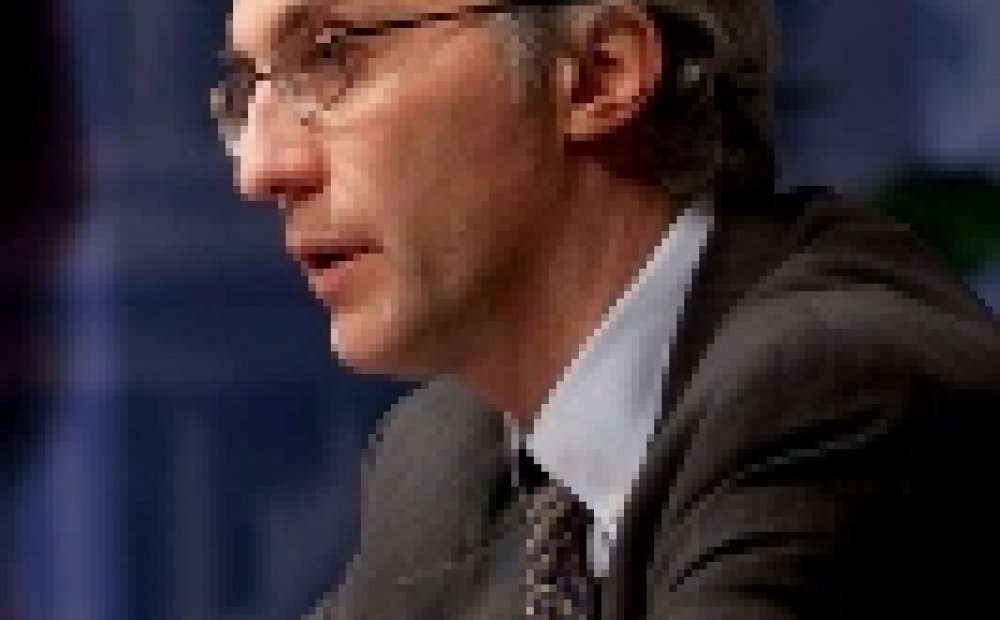Emerging Trends in Russian-American Trade Relations

Following the global economic crisis, many G-20 countries, including the United States and Russia, have had to reconsider their state's financial priorities and economic relations. Philip H. de Leon, President, Trade Connections International LLC, spoke at a 13 December 2010 Kennan Institute event about current trade relations between the United States and Russia, highlighting both the risks and the opportunities.
De Leon began his discussion of Russian-American business relations by noting that despite having made gains since 2008, the Russian economy is still not growing at pre-crisis levels. From an American business perspective, corruption remains one of the key deterrents to investment in Russia. De Leon argued that corruption almost has become a "frame of mind," and an institutionalized part of the political and economic systems. Although de Leon noted that he had interacted with many well-intentioned people in both government and business in Russia, the country itself was still largely perceived as a "mafia state."
De Leon credited the "reset" with re-starting the business dialogue between the United States and Russia. Such a re-engagement was particularly advantageous for Russia, which not only needed better access to U.S. investment and technologies but also U.S. support to gain entry into the World Trade Organization (WTO). De Leon next highlighted some of the current business trends in Russia, by focusing on several notable corporate ventures and Russian state sponsored projects for business development. The Skolkovo project near Moscow, which focuses on spearheading Russia's technological innovation, is a good example of Russia's current efforts to improve its national image and promote research and development. De Leon further noted that the Russian president made an unprecedented visit to Silicon Valley to discuss and encourage investment in Russia, and during his visit, Cisco promised to invest $1 billion dollars in supporting entrepreneurship and technological innovation in Russia.
De Leon also mentioned two other notable U.S. business ventures in Russia that reflect both the positive and negative trends in the country. Pepsi recently acquired 66 percent of Russia's leading dairy and juice provider in a $3.8 billion deal, demonstrating a major American commitment to the Russian market. On the other hand, Walmart apparently has been less enamored with its business experience in Russia, and recently decided to close its Moscow office as it hasn't identified any targets for a potential takeover despite several years of efforts. De Leon observed that Walmart seemed to be following IKEA's lead, which also recently froze its Russian operations, although IKEA later clarified this decision by stating that it was only temporary. De Leon suggested that Walmart, as well as other American and foreign investors, may be heading to more proven, developing markets, like China. This is what the French retailer Carrefour did, closing its Russia stores only a few months after opening them.
"Russia remains a challenging place to do business," de Leon emphasized, especially for American companies. In addition to bureaucratic and other well-established hurdles, de Leon also highlighted Russia's population decline. Russia is currently a long-term "shrinking market," as de Leon pointed out, that will lose one-third of its population by 2050 due to factors such as low birth rates, expensive housing, and the lack of proper healthcare. De Leon argued that these demographic concerns also lessen investment incentives.
De Leon concluded by noting that large, successful companies were still willing to assume the risk and invest in Russia; on the other hand, however, smaller and medium sized firms have largely avoided investing in Russia. De Leon argued that continued interaction and cultural exchange through business and trade will only improve relations, demonstrating that both countries have much to learn from one another. "Russia is a great market", de Leon concluded, "but buyers beware."
By Ross Oermann
Blair Ruble, Director, Kennan Institute
Speaker
Hosted By

Kennan Institute
After more than 50 years as a vital part of the Wilson Center legacy, the Kennan Institute has become an independent think tank. You can find the current website for the Kennan Institute at kennaninstitute.org. Please look for future announcements about partnership activities between the Wilson Center and the Kennan Institute at Wilson Center Press Room. The Kennan Institute is the premier US center for advanced research on Eurasia and the oldest and largest regional program at the Woodrow Wilson International Center for Scholars. The Kennan Institute is committed to improving American understanding of Russia, Ukraine, Central Asia, the South Caucasus, and the surrounding region through research and exchange. Read more
